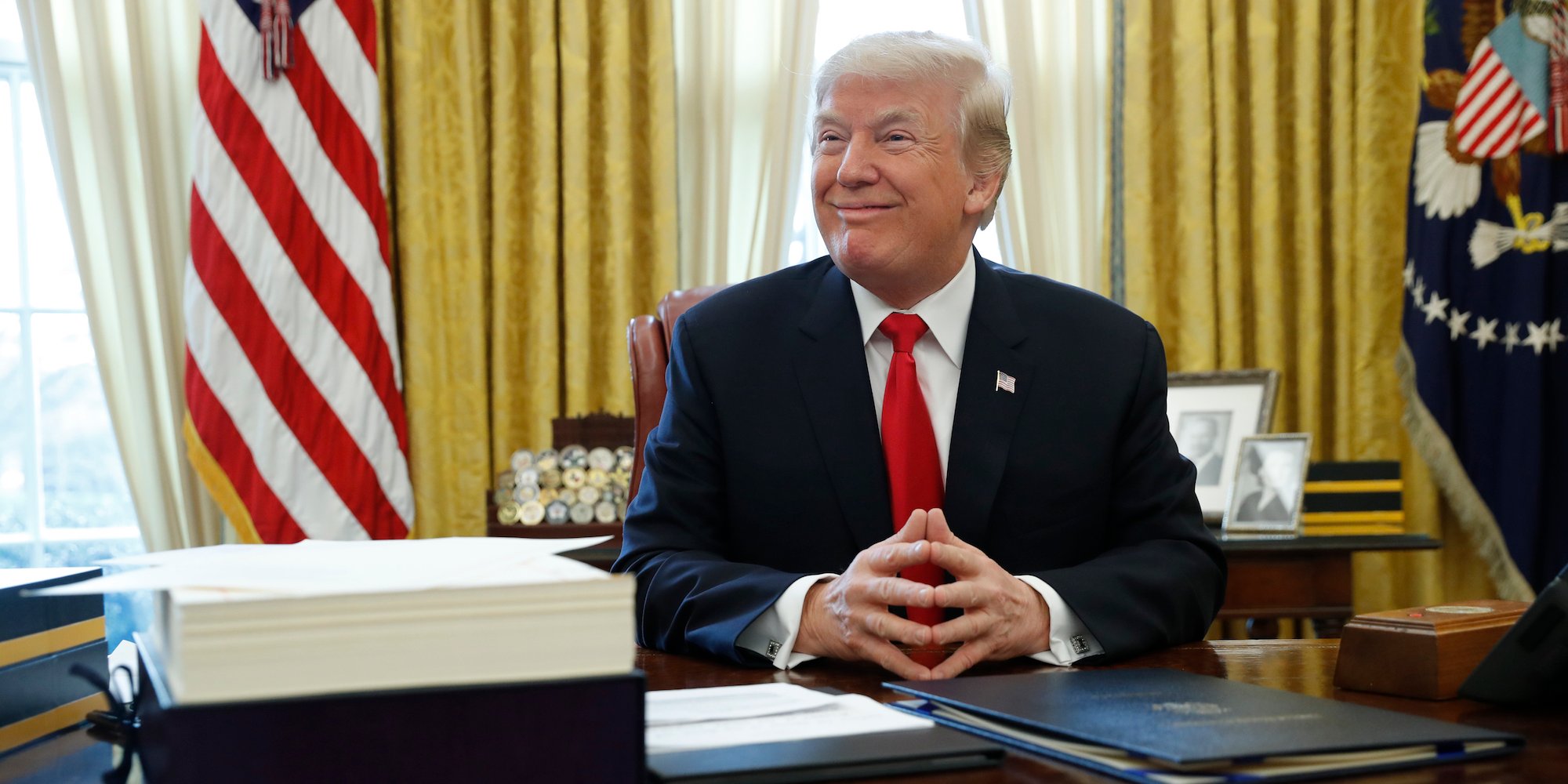 Donald Trump.Jonathan Ernst/Reuters
Donald Trump.Jonathan Ernst/Reuters
- Tax cuts are coming a little too late in the economic cycle, when there’s little room for much faster growth, according to John Hussman.
- “The current tax legislation isn’t some thoughtful reform to benefit Americans,” he said in his December monthly note. “It’s a quickly planned looting through a broken window in our nation’s character.”
- Congress should instead be providing tax incentives for real investment, education, research & development, and other factors that could increase productivity, he said.
John Hussman is also bearish on tax cuts.
The president of Hussman Investment Trust has warned about a stock market crash for several years and thinks investors have a decade of losses ahead of them.
While he’s not calling for an outright recession, he doesn’t buy the Trump Administration’s belief that lower taxes will grow the economy much faster than its recent pace.
The Tax Cuts and Jobs Act, signed last week by President Donald Trump, is expected to lower corporate and individual taxes by nearly $1.5 trillion. With extra income for consumers and cash flow for companies, several analysts expect at least a minimal boost to the economy.
The only problem is that tax reform is coming too late in this economic cycle, according to Hussman.
“The central feature of both the Reagan and Kennedy tax cuts was that they were enacted at points that provided enormous slack capacity for growth,” Hussman said in his December monthly note.
“In particular, the Reagan cuts were enacted at a point where the unemployment rate had hit 10%, and an economic expansion was likely simply by virtue of cyclical mean-reversion. The Kennedy tax cuts (which brought the top marginal tax rate down from 90%) occurred as baby-boomers were just entering the labor force, again providing enormous capacity for growth.”
Today, the unemployment rate is at a 17-year low of 4.1%, and baby boomers are retiring from the workforce. As demographics have changed, Hussman said, the growth of the labor force has slowed, and so has productivity growth.
“If our policy makers are interested in boosting long-term structural US GDP growth, they should be providing direct and targeted tax incentives for real investment, education, research & development, and other factors that could, over time, increase our nation’s productive capacity,” he said.
Other market commentators have argued about the timing of tax cuts including Jeff Gundlach, the DoubleLine Funds CEO. During an investor call earlier in December, he said tax cuts could boost economic growth, but the timing was odd versus 30 years ago when the economy needed stimulus.
Hussman also takes issue with who could benefit the most from lower taxes. After-tax savings depend on how much you currently earn, and nearly half of Americans could see a tax increase when many of the provisions in the law expire in 2025. Also, wealthy people stand to benefit from specific changes like the repeal of the estate tax.
“Frankly, the notion that corporate tax cuts will unleash some renaissance in US real investment and growth would be laughable if the bald-faced corporate giveaway wasn’t so offensive,” he wrote.
“The policy not only vastly favors the wealthy, but is even more preferential to wealthy individuals who take their income in the form of profits rather than wages. The current tax legislation isn’t some thoughtful reform to benefit Americans. It’s a quickly planned looting through a broken window in our nation’s character.”














